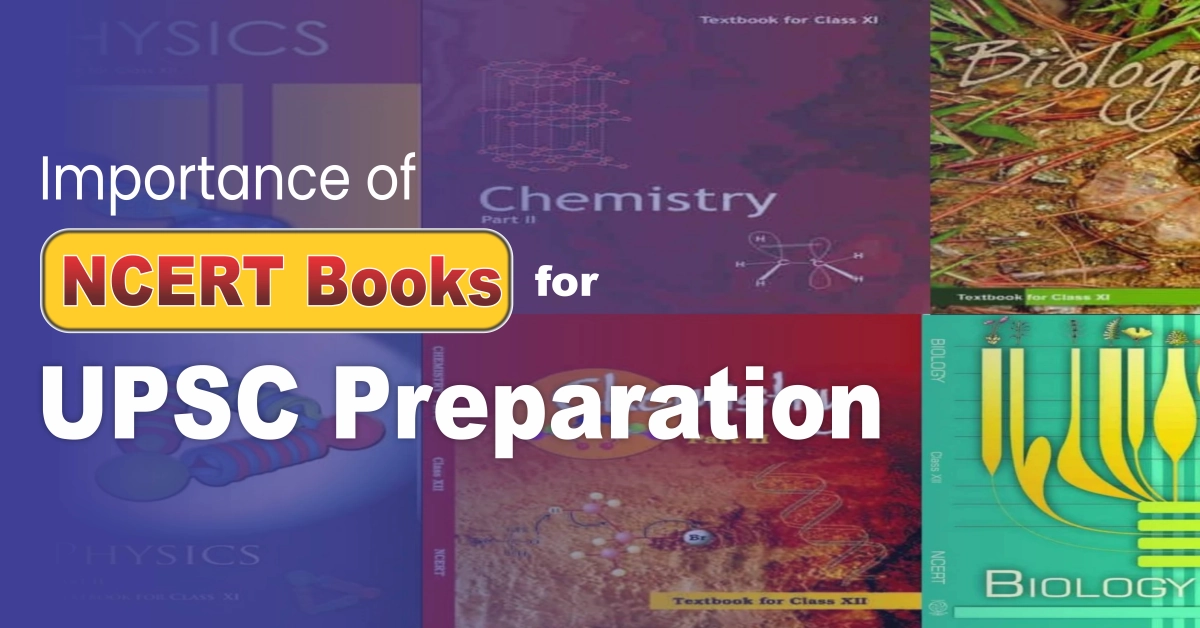All through our articles and blogs on UPSC preparation, we have time and again stressed on the importance NCERT books. These are basically the strong foundation over which your UPSC Dream can be built upon. When you start searching for UPSC preparation over the internet, the first thing which everyone will tell you is that to be thorough with the NCERT books from Class 6th-12th.
The most common dilemma faced by most of the beginners is that they are bogged down by the notion that the ‘Great UPSC’ can only be conquered by reading thick and bulky books. Bu that is not even partially correct. Yes, standard books are important but if you are well-versed with the NCERT books, the rest becomes a lot easier. As Simple As that…..!!!!
Following are certain tips and advices as to how effectively you can use plus the “Importance of NCERT Books in the UPSC preparation”:
Before we begin, have a peep into the UPSC notification, as to what all it demands from the aspirants:
“The questions are likely to test the candidate’s basic understanding of all relevant issues and ability to analyze and take a view on conflicting socio-economic goals, objectives and demands”.
This instruction in itself explains the fact that, UPSC is a ‘Game of Jacks’. Specialization of all the subjects is a luxury you need not afford.
Moreover, it is also stated that in the UPSC notifications that,
The nature and standard of the questions asked in the General Studies Paper (Paper II to Paper V) will be such that a well-educated person will be able to answer them without any specialized study.
As per the UPSC instructions, the questions asked will be to test the basic understanding of a candidate. This is here that NCERT books come in handy. In order to develop a basic understanding of relevant topics mentioned in the UPSC syllabus, start from the NCERT books. Once you are done with it, then you can move on to the recommended standard books.
To give a more clear view, we can assume an example as well. Most of the aspirants preparing for the UPSC CSE might not be completely confident about how the Panchayat and Municipal elections are conducted or how the representation of different sections of the society is taken care of. These topics are clearly mentioned in the Class 11th textbook of Political Science i.e. ‘Indian Constitution at Work’. The Chapter 8 on ‘Local Governments’ so reasonably and in a lucid manner with illustrations, explains all the processes involved.
There are numerous instances where questions in the UPSC Prelims or Mains have been invariably taken from the Exercise given at the back of every chapter in the NCERT books. For example, have a look at these questions:
- Who among the following had first deciphered the edicts of Emperor Ashoka? [UPSC Prelims 2016]
- George Bihler
- James Princep
- Max Muller
- William Jones
[Now, this is a direct question from the NCERT book, ‘Themes in Indian History 1’ Class 12th]
- What were the reasons for the introduction of Fiscal Responsibility and Budget Management Act, 2003? Discuss critically its silent features and their effectiveness.
[GS-III, UPSC Mains 2013]
[This is question from the NCERT book, ‘Introduction to Macroeconomics’, Class 12th]
These are just to note a few. Every year you can expect certain direct questions from these NCERT books itself. And so, these books become so much important to complete at the first go.
Having realised the importance of the NCERT books in a broader sense, we need to tackle another dogma as to “how can you effectively read the NCERT books for UPSC preparation?”
Well, we have a simple mantra to it:
- Do not try to memorize everything given in the book; it will serve you little purpose. Instead, try to grasp the underlining concepts.
- Gaining conceptual clarity is the key; make notes for whichever chapters you finish in your own words.
- The self-preparatory notes will help you in revisions and it can be also used as references while reading the standard books.
Now, comes the other important question, which all NCERT books to study. In the hindsight, you should read all the NCERT books from Class 6th-12th (except the mathematics and language books, obviously…!!!). Here, have a look at the NCERT book list below:
- HISTORY – Class 6th-12th all books.
- Culture – Class 11th book on Culture (both parts)
- Geography – Class 6th-12th all books
- Polity – Class 9th-12th all books
- Economics – Class 9th-12th all books
- Science – Class 6th-8th and Class 9th-10th (Selectively)
- Environment and Ecology – Class 12th Biology (Last 4 chapters) and Class 11th Chemistry (Chapter 14)
This is only a sample size analysis on the importance of NCERT books. In the course of UPSC preparation you will find more for yourself. There is no denial of the fact that NCERT books are the perfect tool to streamline your preparation and guess, we have made it loud and clear that getting back to NCERTs is the way forward.
We will quote a real life example here, when Virat Kohli failed miserably to cope with the swinging duke balls in the 2014 series in England against the likes of James Anderson, what he did? He worked on his basics hard and the result? He was the highest run-getter from either side in 2018 series without getting out even once to James Anderson the whole series.
Sticking to basics, like the NCERT books, help you to improve upon your mistakes and shortcomings. A battle is won or lost in terms of how quick you tend to realize your mistakes.
So, if you have not till now started with the NCERT books, then take up the challenge and get going. Success is waiting to embrace you.




